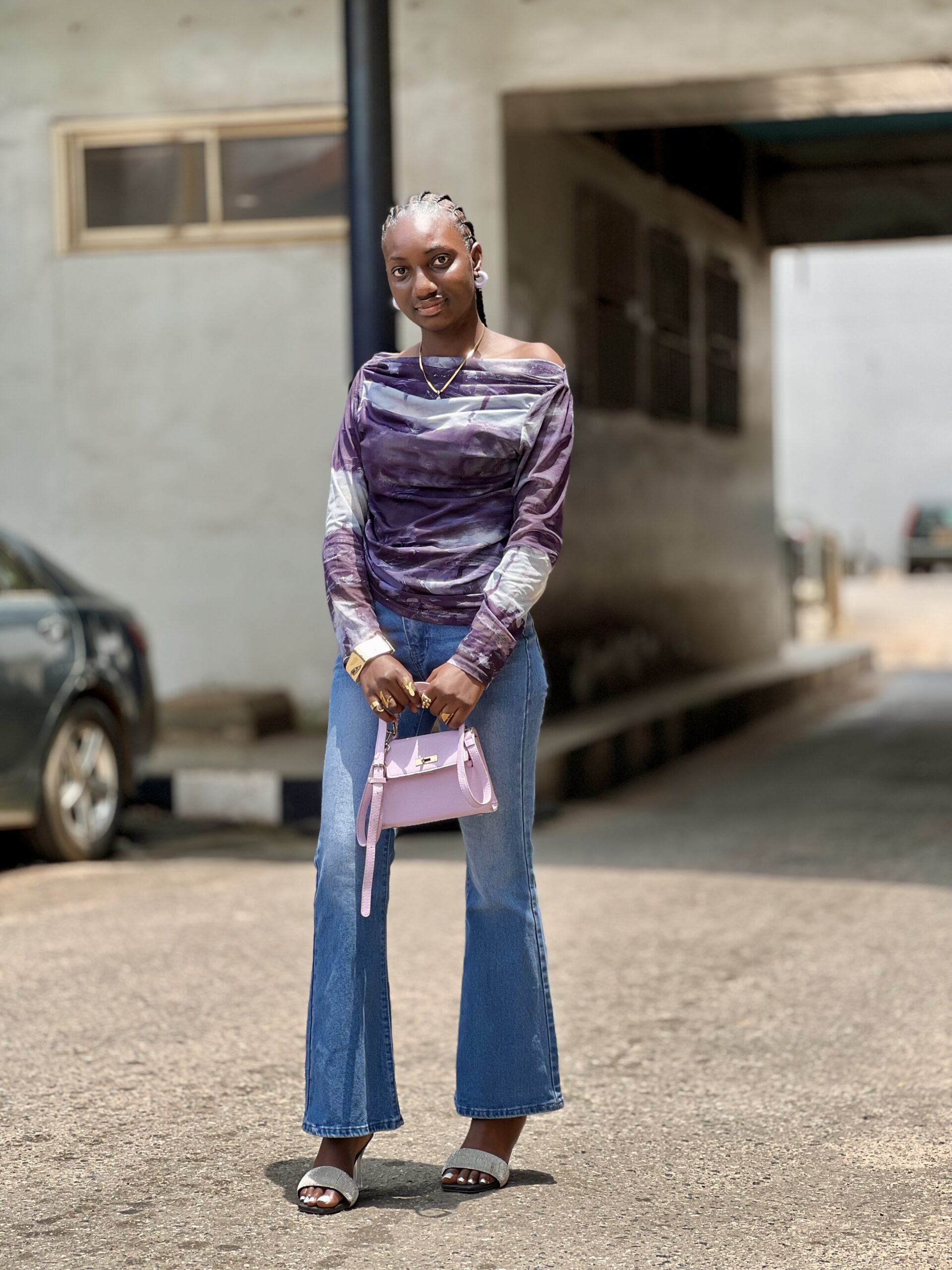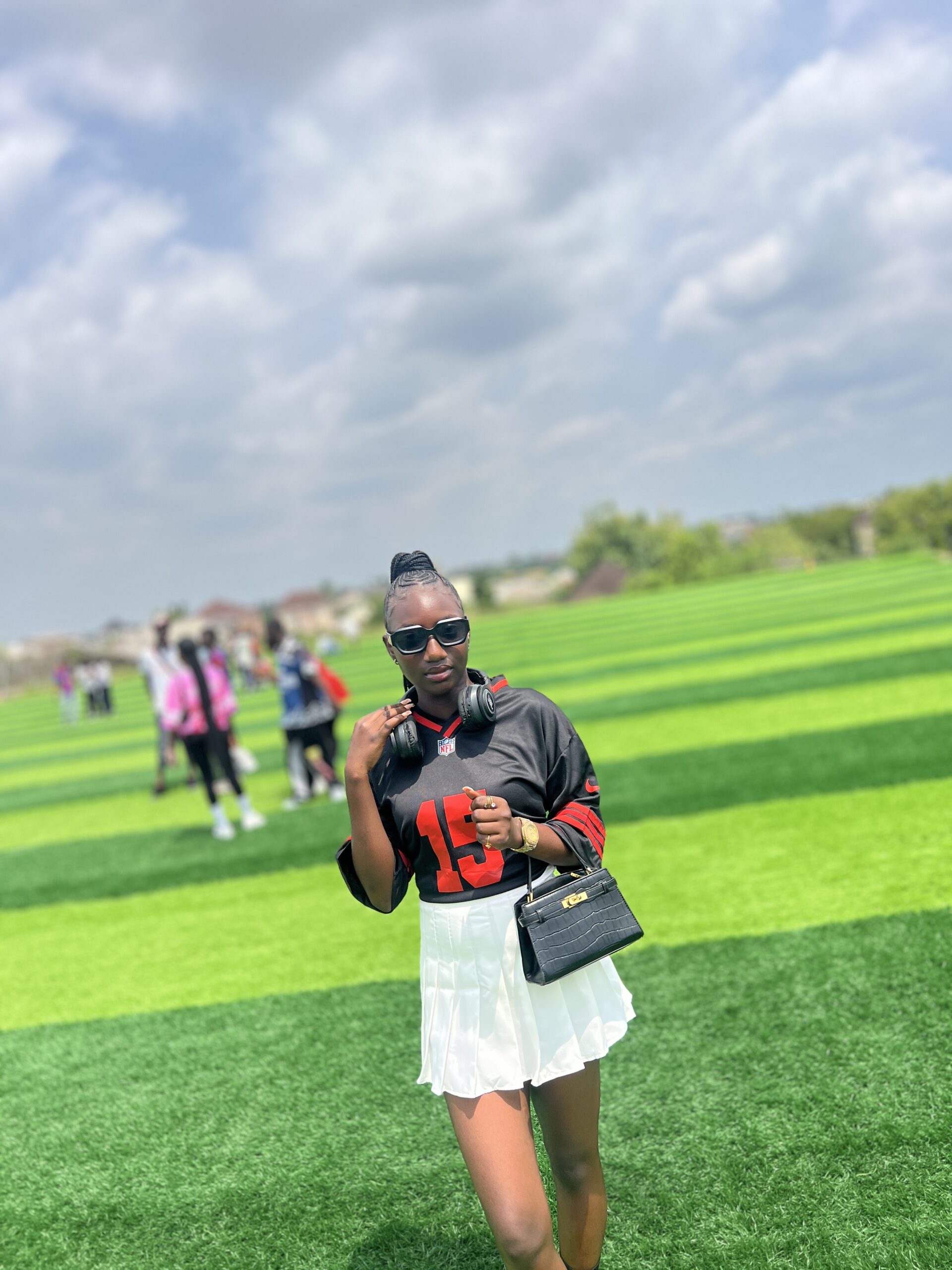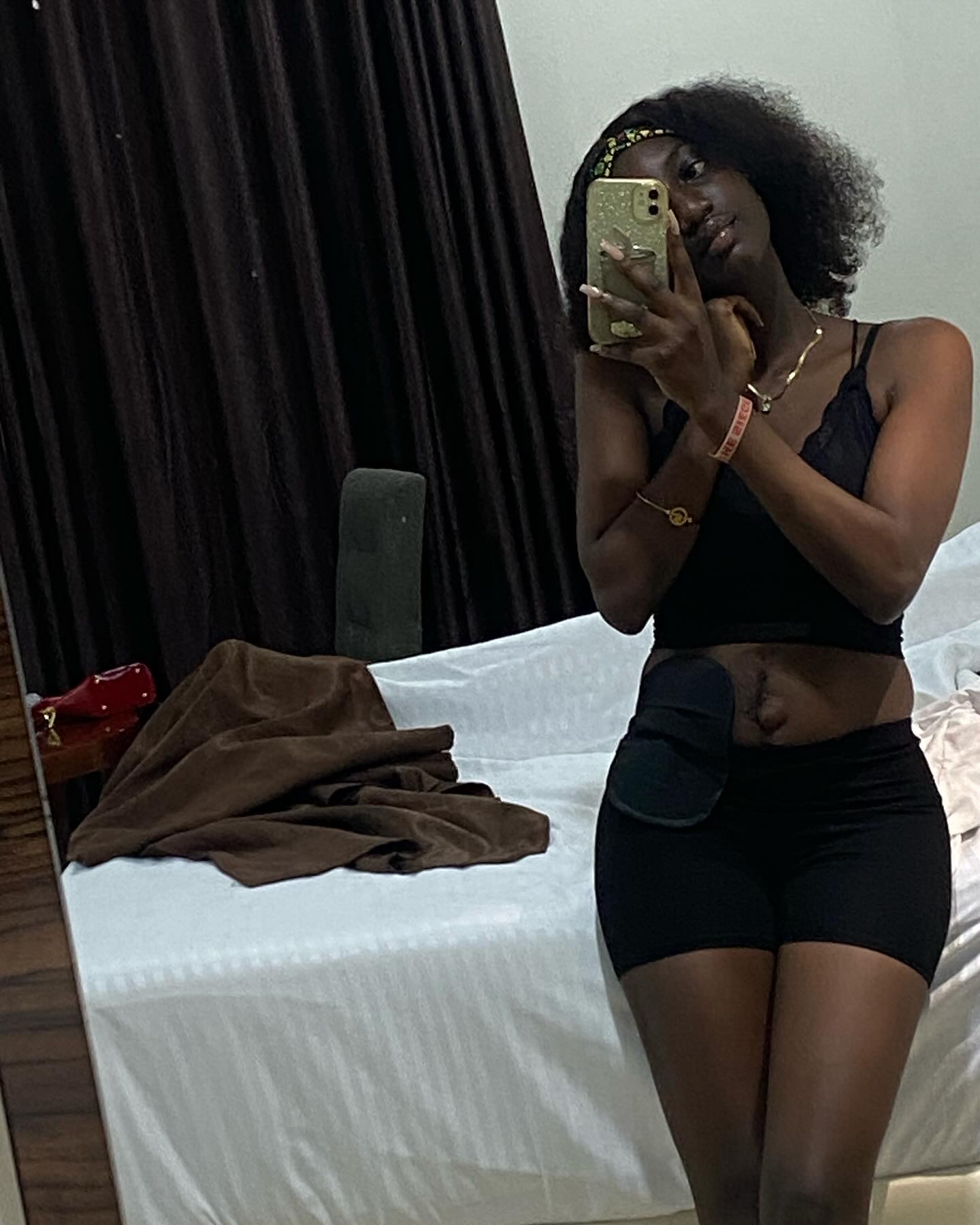Features
How Tobiloba Oluwasina Continues to Live After Surviving Cancer
“What are the dreams of a cancer survivor?”

Before March 2022, Tobiloba Oluwasina had been feeling an incessant ache in her stomach. Her weight dropped from over 70 kilograms to 30 kilograms. She had never been a sick child, so at first, it didn’t raise alarms. But when she started spitting blood and mucus, her family realised the seriousness of her condition. So in March 2022, her father, together with her two older sisters, drove down to the hospital for a diagnosis. When the result came, she was diagnosed with stage three colorectal cancer.
Tobiloba Oluwasina recently completed her final year exams at Olabisi Onabanjo University, where she studied Yoruba. But she didn’t enjoy the experiences of being a student at the university because she was diagnosed with cancer not long after gaining admission into the university.
I didn’t get to have the student life like every other student. I used to go to school maybe two weeks or a week before my exams, read what I could, do my exams, and then go back home to continue my treatment. There were times when I would just black out, and then the school’s emergency bus would rush me down to Ibadan.
She was undergoing treatment at University College Hospital, Ibadan, which is about 70 to 80 kilometres away from her school. When the doctor broke the news to her and her family, it felt as though it was misinformation. While her family knew the condition of her health was serious, they were never expecting a cancer pronouncement. “I had never heard of or seen anyone who had cancer, except in movies. I always felt like cancer was a sickness for the rich.”

Tobiloba is the last of three girls, and a baby, as every Nigerian household often pampers the last child. “Hearing that their baby had cancer really broke my family. If tears could make things better, I wouldn’t have had to go through chemotherapy, because we cried, my whole family cried.”
Both Tobiloba’s parents are civil servants, she said, so, apart from the toll they knew cancer would take on her, finances were also a burden. (Her parents’ salaries combined aren’t up to ₦200,000 monthly.) At first, doctors recommended surgery as the best and most immediate option. The family was told to raise ₦800,000 for the operation.
View this post on Instagram
After the surgery, they found a frozen pelvis, meaning the tumour was so big it had attached itself to various organs: her pelvic wall, bladder, and uterus. Removing it would be life-threatening; it was a failed surgery. They created a colostomy, a bag attached to a side of her stomach. It connects to the small intestine to divert faeces, since colorectal cancer affected her anus, and she couldn’t poop normally.
The colostomy was temporary, the doctors said.
When the surgery failed, the doctors prescribed that the next steps would be chemotherapy and radiotherapy to shrink the tumour, and another surgery to remove the tumour and reverse the colostomy. She started chemo in April 2022. Each course of chemo then cost ₦250,000, and she did 6 courses every two weeks.
“Chemotherapy is brutal. I lost all my hair, lost weight, couldn’t sleep, had body pains, headaches, my nails turned black, my period stopped, I vomited constantly, and I couldn’t even go out in the sun,” Tobiloba told me.
After the sixth course, she underwent an MRI to assess its effectiveness, which cost approximately ₦208,000. And yet, the results showed the drug or chemo didn’t work. The tumour hadn’t shrunk at all. The doctors advised that she had another 6 courses of chemotherapy. Still, after the twelfth, the MRI result was the same; the tumour hadn’t shrunk. Each time the MRI results came back unchanged, it felt like hope itself was shrinking
“That broke me and my family, but we’re deeply Christian. So we just kept praying.”
I asked how she was combining school with chemotherapy, and she said, “I started school in January 2022, got diagnosed in March, and then ASUU went on strike for eight or nine months. That strike actually helped me because I was in and out of the hospital.”

Chemotherapy has three lines, and since the first line failed after 12 courses, Tobiloba was prepared for the second-line chemo, which is stronger and more expensive. “I did another six courses of that, too.” But after another MRI, the tumour was progressing instead of shrinking. At that point, Tobiloba became tired, physically and mentally. The family were broke, always borrowing and begging, and it felt like all the effort was going to waste.
“In between, I also did radiotherapy, radiation directed to my pelvis. That burnt my skin. The area around my private parts peeled off. I couldn’t bathe properly for months; I only cleaned myself with towels because water burned my skin.”
After 18 courses of chemo and all the radiation, Tobiloba approached her oncologist to “advise me like your daughter. This treatment isn’t working. My whole family’s life is on hold because of me.” The oncologist told her to see the surgeon and ask if they could try another surgery, just to see if anything could be removed, and was not covered in the MRI.
“My surgeon, Professor Irab, admired my strength and agreed. We scheduled the second surgery for after my exams in December 2023. In November 2023, after exams, I returned for a rectal examination, and he said, “We’ll try.” I did three more courses of chemo before the surgery.”
When the day came, the doctors went in and, finally, they were able to remove the tumour, which had now softened. “My sister told me the doctors came out sweating profusely and asked her to bring a big bowl. The tumour was that big.”
She began her healing process, and it took about three months. However, the surgery meant her colostomy became permanent. They took out her rectum, and she no longer has an anus.
After healing, she underwent chemoradiation at Lagos University Teaching Hospital to kill any remaining cancer cells. That cost about ₦6 million. By this time, Tobiloba’s family had exhausted every resource they could find. The only option left was to ask for help. Her siblings started crowdfunding online for support.
“Altogether, we’ve spent around ₦35 million on my health. From crowdfunding, church support, and people helping us. I still don’t know how we managed, but we thank God.”
Embracing life
According to research, one in three people with cancer experience mental or emotional distress, with up to 45% experiencing anxiety and up to 25% experiencing symptoms of depression. A 2024 study by the London School of Hygiene & Tropical Medicine, which focused on common cancers like colorectal, liver, and pancreatic, revealed that ” those who had been diagnosed with cancer remained at increased risk of experiencing new episodes of anxiety and depression, both in the short term and more than five years after diagnosis.”
In Nigeria, cancer is one of the leading causes of death in the country. But one of the challenges cancer patients face is stigmatisation. The Head of Clinicals at the ABC Foundation, Anjola Grace, stated in a report that cancer patients often report late due to fear of stigmatisation.
Tobiloba enjoys sharing her cancer journey online with a community she has formed online. She began sharing her journey in 2022, what helped, what hurt, and to also speak to anyone who experienced or is experiencing her journey.
I’m never ashamed of my colostomy. I talk about it openly, and post about it, even tell people, “Yes, I poop through my stomach. If that’s a problem for you, that’s your problem.” I call my colostomy the scar to my victory, like soldiers who come back from war with battle scars. It’s my proof that I survived.
View this post on Instagram
“I turned my TikTok page into an awareness platform for colorectal cancer and ostomy survivors. The first video I posted went viral, and it gave me the courage to keep posting, share my experience, and educate people. TikTok took down two of my accounts, but now my new one has over 230,000 followers and millions of views.
“People began reaching out, especially Nigerians living with ostomies. Many of them told me they never dared to talk about it until they saw my videos. Some said, “You made me proud to say I have a colostomy.” Messages like that keep me going.”
Tobiloba dreams of launching a Colorectal Cancer Foundation someday, to support people going through colorectal cancer, however possible. She knows that not everyone will survive colorectal cancer, but she wants to make sure no one ever has to face it alone.
“I want to inspire them, too. Anyone can start a foundation, but a survivor starting one is different. It’s personal. I’ve lived it, so I can truly relate to what others are going through. I want to support people not just in Nigeria, but internationally someday.”
___________________________
BellaNaija currently runs a #StopHPVForHer campaign to emphasise the importance of early education, regular screenings and vaccination in preventing HPV and cervical cancer, and to bridge the information gap through expert insights, practical resources on HPV, its prevention, and treatment options, medically reviewed explainers, personal stories, and interactive digital content.























